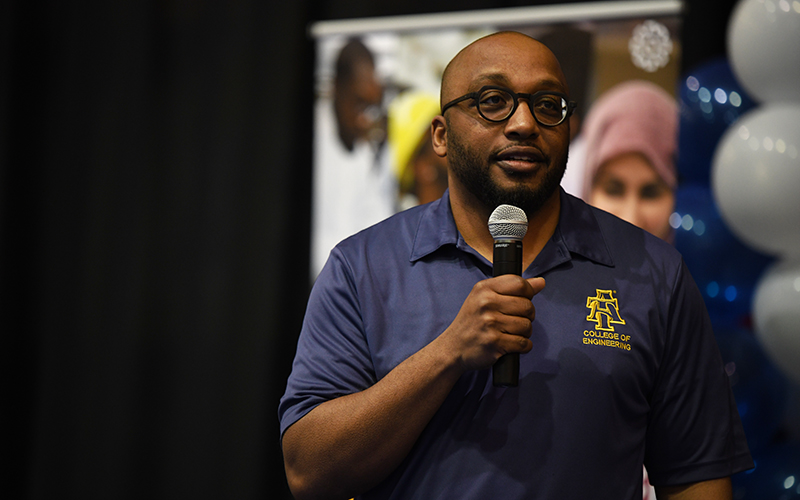A&T serves as the affiliate partner (AP) for the FIRST LEGO League Challenge (FLL Challenge) and FIRST Tech Challenge (FTC) robotics programs. A&T is the primary contact in the region and is responsible for the strategic growth of these programs, which are managed from within the College of Engineering by Dr. Kory Bennett, Director for Robotics Outreach.
Inspiring the Future of Engineering
The College of Engineering is devoted to advancing the engineering discipline well into the future and inspiring the next generation of innovators. Year-round, the college hosts events and opportunities for local and regional K-12 students to introduce them to exciting, fundamental and hands-on engineering activities.
The college recently showcased its first-of-its-kind in the nation solar installation ambassadorship.
FIRST (For Inspiration and Recognition of Science and Technology)

North Carolina Science Festival
Every April the College of Engineering participates in the North Carolina Science Festival, a month-long celebration of science. The events are hosted by the College of Engineering and involve hands-on demonstrations by faculty, industry and community representatives who share a mutual passion for engaging K-12 area youth in fun, hands-on engineering and computer science activities. The events, sometimes a first exposure to engineering for young North Carolinians, are designed to inspire the next leaders of engineering.
450
K-12 Youth Engaged with hands-on engineering and computer science activities
A Regional Impact Providing engineering and computer science learning opportunities
Developing an engineering future By creating the next leaders in engineering and computer science.
Gen Cyber Student Program


The GenCyber student program, offered to rising eighth-to twelfth-grade area students, builds the local cybersecurity talent pipeline by promoting the study of cybersecurity, developing in students the required skills necessary to build next generation information experts and improving teaching methods for delivering cybersecurity content in K-12 curricula.
During the camp, participants learned 1) how to differentiate safe and spam URLs and identify phishing websites and emails, 2) cryptography and its applications, 3) the basics of cybersecurity, network security, digital forensics and steganography, and 4) how to handle administrative tasks in a multi-user windows system.
GenCyber camp is funded by the Department of Defense National Security Agency.
45
Total Students Enrolled with a strong emphasis on underrepresented racial and gender minorities
Interactive Hands-on activities, games and projects
Fun Assessments to strengthen students' understanding of the concepts, knowledge and skills





